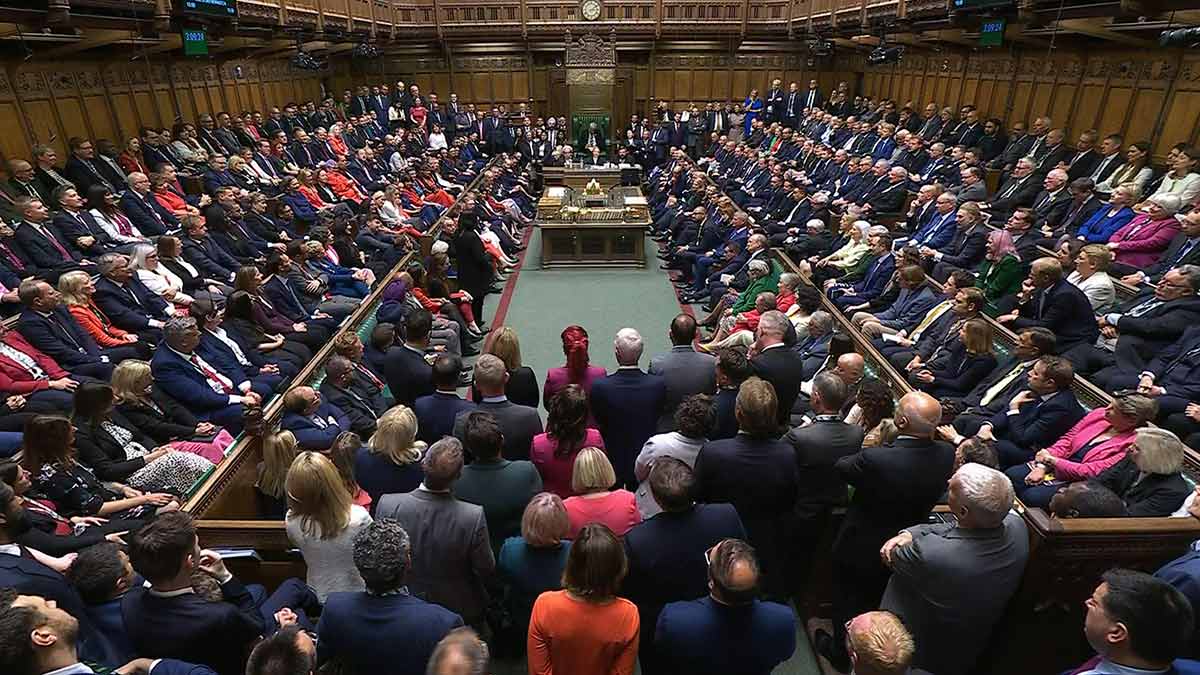

Kate Shoesmith, deputy chief executive of the Recruitment and Employment Confederation (REC), writes an open letter to MPs urging them to understand today’s people and labour market challenges.
Dear Members of Parliament,
Many congratulations on the new job/re-election! Suffice to say, you all succeeded in one of the most unusual and challenging ways to find work – it’s not a recruitment process we usually encounter in our profession.
And while campaigning undoubtedly will have been hard work and hard-won, you will know that the real hard work starts now. We are at a critical point in our economy – one where careful and considered intervention is required if we are to turn the corner and unleash growth and social advancement.
Central to this will be developing a clear understanding of the labour market – locally, yes, but also at a regional and national level. It has been the resilience and strength of the UK jobs market that has ensured last year’s downturn wasn’t worse.
Away from the sectors and occupations where jobs are being created, and where they are being transformed, it is vitally important to understand how people need and choose to work today. Because the labour market has transformed – and it is still changing.
We all know the impact of Covid on hybrid working – but the magnitude of change is far greater than this. Caring responsibilities have increased for many people, health conditions are more prevalent, wellbeing is finally on the agenda, and the cost-of-living crisis still bites for many. To manage each of these, people have looked for different ways of working. Flexibility, coupled with pay, is often the number one ask of candidates across the UK.
Dynamic labour markets
According to our data, on any given day, there are a million temps, contractors and interims working in the UK. A total of 25.7 million temporary, interim and contract placements were made in 2022, compared to 22.4 million in 2021.
So before doing anything – and as the REC sets out in our manifesto ‘Dynamic Labour Markets for Growth’, our first ‘ask’ is to understand today’s people and labour market challenges.
And there are challenges. Our research suggests a continued failure to overcome labour and skills shortages will cost the economy up to £39bn every year – just short of building two whole Elizabeth Lines – in less GDP and productivity.
Economic inactivity is stubbornly high and there is a sense that the ladder of opportunity is broken for many young people. While there are plans to address it, the apprenticeship levy is flawed. With an ageing population across the UK, we need to ensure work opportunities continue to be accessible and enticing to older workers. AI is and will change how we all work. The green economy represents a real growth opportunity, but we do not have the workforce to support it, yet. Our first step here is fairly simple – lets set the definition for a ‘green job’ (we have one ready to go if you are asking), to help focus minds across business, industry and Whitehall.
The appetite for business to co-operate with policymakers is huge. As early adopters of AI, for example, the recruitment industry has been working with officials on the ethical principles that should underpin its usage. REC’s partnership with Maximus’ employability services and local JobCentre Plus has found work for more than 2,000 people, and we had one of our best placement rates in June this year.
A proper industrial strategy is keenly anticipated by employers. Skills is part of that, but not the only part – immigration, devolution and labour market activation strategies all matter”
Across the public sector, recruiters have been a conduit to offer much-needed flexibility for skilled workers. Effective partnerships here can provide far better value for taxpayer money. This is why we ask you to encourage Whitehall to work with staffing experts on the redesign of public sector procurement frameworks. This would save the public purse money over the short to medium term, and in the long term improve workforce retention and help reduce waiting lists.
Why people work the way they do
There is the promise of a long-overdue employment bill. We hope to see better enforcement of worker rights through a single Fair Work Agency and regulation of all parts of the worker supply chain, including umbrella companies. But before introducing measures, policymakers must understand why people work the way they do and the protections they already have. Any proposal of a single status of ‘worker’ must not create a barrier to flexible working or undermine the legal rights already carved out for agency workers.
The expectation of announcements and debates in Parliament about a proper industrial strategy is keenly anticipated by employers. Skills is part of that, but not the only part – immigration, devolution and labour market activation strategies all matter. We have many lessons learnt to share across the recruitment and employment community that can inform these debates and ensure the UK becomes a global leader and a beacon for inward, as well as local, investment.
Once again, congratulations on becoming MPs. There is a lot to do to maximise the success of our labour market. But we look forward to working with you on this. Together, we firmly believe we can deliver enhanced productivity, better outcomes for individuals and, ultimately, growth.
Yours faithfully,
Kate Shoesmith, deputy chief executive, REC
Sign up to our weekly round-up of HR news and guidance
Receive the Personnel Today Direct e-newsletter every Wednesday
